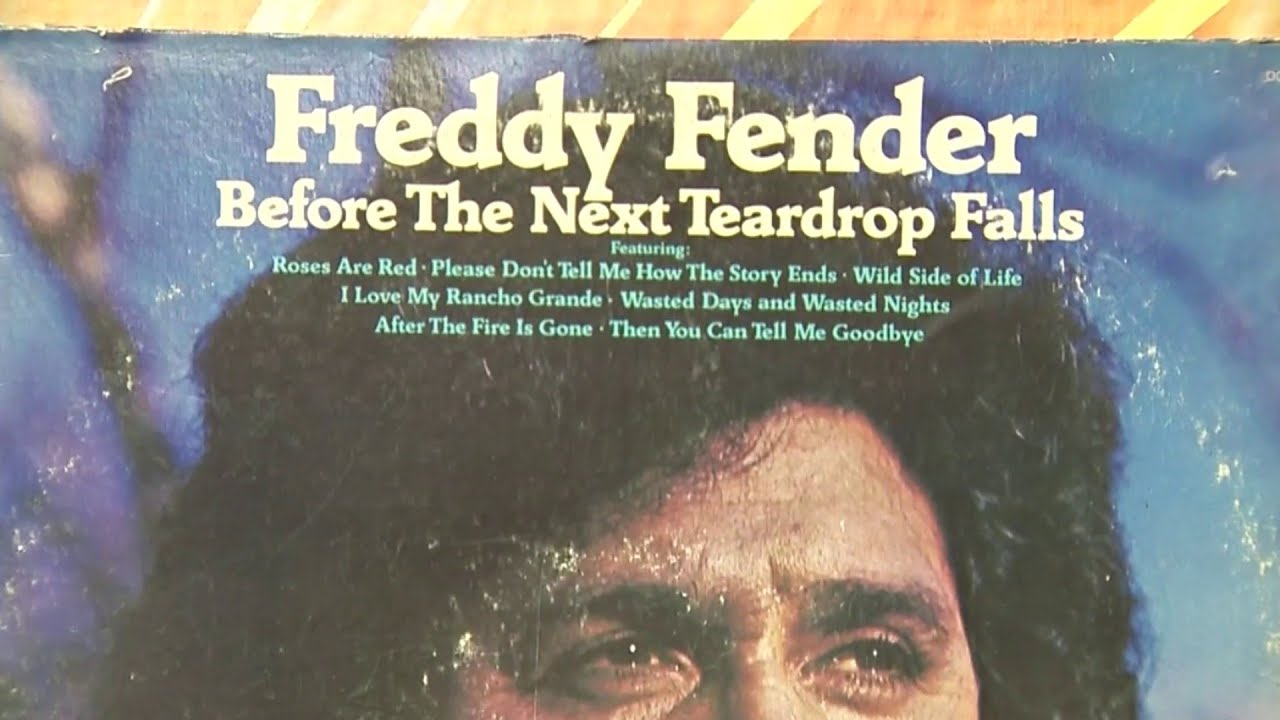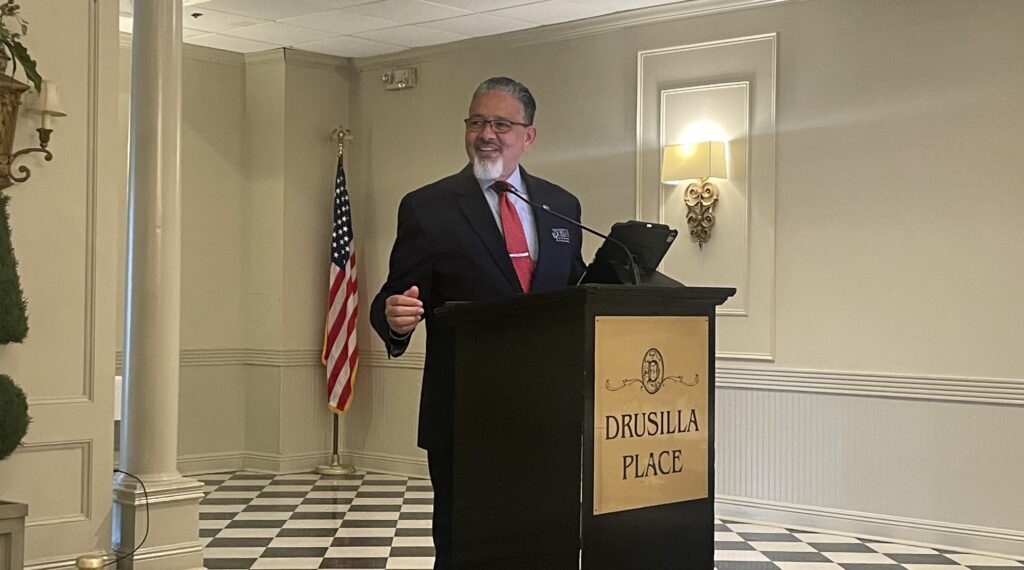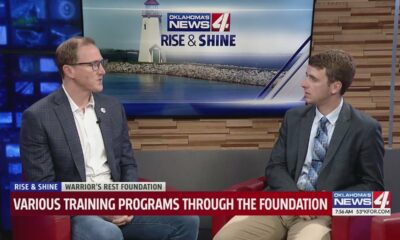News from the South - Louisiana News Feed
Live broadcasts of Louisiana ethics board meetings proposed

Live broadcasts of Louisiana ethics board meetings proposed
by Julie O’Donoghue, Louisiana Illuminator
March 7, 2025
The Louisiana Board of Ethics would have to broadcast its meetings under legislation filed by a state lawmaker who has had several disputes with the board over his missed deadlines and unpaid fines.
State Rep. Steven Jackson, D-Shreveport, filed House Bill 21 to require the ethics board to broadcast or stream online its public meetings. The board would also have to keep the recordings available in a public archive for at least two years.
The board usually convenes monthly for two consecutive days. Elected officials, political consultants and government workers appear before the board at the meetings asking for relief from fines or to push back on the board’s other rulings.
At those same meetings, the board can also vote on whether elected officials and government employees violated anti-corruption and campaign finance laws.
In recent months, legislators have complained the board meetings, while open to the public to attend in person, aren’t transparent because they aren’t available through a broadcast or online streaming.
In contrast, every committee meeting and floor vote of the Louisiana Legislature can be watched in real time and are kept in a video archive on the legislature’s website. A few other state boards, such as the Public Service Commission and Board of Elementary and Secondary Education, also stream their meetings on the internet.
People can also receive an audio recording of ethics board meetings through a public records request made, though no live stream or video recording is available.
Prior to becoming a state legislator, Jackson had five years of angry exchanges with ethics board staff over fines he had accrued while running for public office. He had to pay over $10,000 in penalties after improperly submitting 12 campaign finance and personal financial disclosure reports.
During his first year in the statehouse last year, Jackson passed two laws that reduce ethics board filing requirements and cut the fines the board can assess to lobbyists. He also sponsored a legislative study of Louisiana’s campaign finance laws that is supposed to wrap up by the end of this month.
Jackson could not be reached for comment Friday. The legislative session where his bill will be up for discussion starts April 14.
YOU MAKE OUR WORK POSSIBLE.
Louisiana Illuminator is part of States Newsroom, a nonprofit news network supported by grants and a coalition of donors as a 501c(3) public charity. Louisiana Illuminator maintains editorial independence. Contact Editor Greg LaRose for questions: info@lailluminator.com.
The post Live broadcasts of Louisiana ethics board meetings proposed appeared first on lailluminator.com
News from the South - Louisiana News Feed
Easter Weekend: Muggy, warm, and windy

SUMMARY: Easter Weekend will be warm, muggy, and breezy, with mostly cloudy skies and temperatures in the low 80s. Current conditions are in the low 70s, making it a sticky day for events like the Crescent City Classic. While there’s a slight chance of rain on Sunday, most of the day will remain dry. Winds from the southeast could gust near 30 mph. Next week, a front will bring increased rain chances and storms starting Monday, with unsettled conditions continuing into Tuesday and Wednesday. Despite this, warm temperatures in the 80s will persist throughout the week.

Easter Weekend looks very nice! It will be hot, humid, and windy with high temperatures in the lower 80s both afternoons. More clouds will be around with some breaks
News from the South - Louisiana News Feed
Vicente Fernandez and Freddy Fender join National Recording Registry

SUMMARY: This year, Vicente Fernandez’s “El Rey” and Freddy Fender’s “Before the Next Teardrop Falls” were inducted into the National Recording Registry, alongside Lin-Manuel Miranda’s *Hamilton* album. Congressman Joaquin Castro has championed the inclusion of more Latino artists in the registry, noting that Latino representation is only 5%. Over the last three years, with input from constituents, Castro has successfully nominated 30 songs and albums, including iconic Latino tracks. He advocates for more Latino contributions to be recognized, including Selena’s work. Castro will continue gathering nominations for 2026, aiming to better reflect Latino cultural influence in the registry.

Each year since 2000, the Library of Congress has selected influential songs and albums to be preserved in the National Recording Registry. This year, three Latino artists were inducted — two of them with deep roots in Latino culture and South Texas.
News from the South - Louisiana News Feed
Q&A with University of Louisiana System President Rick Gallot on higher education

by Piper Hutchinson, Louisiana Illuminator
April 18, 2025
This is an interview with University of Louisiana System President Rick Gallot that took place earlier this month about how the legislative session and federal changes will impact higher education in Louisiana. It has been edited for length and clarity.
You can also listen to a version of this interview on our new podcast The Light Switch.
Piper Hutchinson: What do you think is coming for higher education this session?
Rick Gallot: I think certainly starting with a standstill budget is always better than starting with a proposed cut. So, you know, we’re certainly very grateful for that. I think there’s a lot of uncertainty, coming out of Washington and with the constitutional amendments that did not pass, obviously that has created some angst in terms of what do we do now, right? And so I think there is, again, just an overall level of uncertainty that we’ll see it … kind of play out over time.
I think if you look at the increased revenue from the sales, sales taxes and other things, we’re certainly not in a real bad spot right now as a state in terms of our finances. So I’m still optimistic that we will work through the challenges in the session, and we will come out good on the other side.
Hutchinson: Looking at the bills that we have so far, what do you think is going to be the most impactful for higher education?
Gallot: It’s hard to say, and when you look at what’s filed versus what ultimately makes it through the process; all bills filed on the front end don’t always make it. Rep. (Emily) Chenevert has come back with another diversity, equity and inclusion bill. We will certainly have to see how that plays out. The bill she had last year started one way and ended up another. … Certainly with all other higher ed leaders, she was very receptive to meeting with us and working through some of those challenges last year. At the end of the day, I think the budget is always going to be the main focus that could impact the trajectory going forward.
Hutchinson: There’s one bill that’s going to have a big impact for your system, talking about transferring UNO back to the LSU System. What should we expect on that front?
Gallot: For me personally, it’s a full-circle moment. I was in the house when UNO was transferred from LSU to the University of Louisiana System. You know, I just want what’s best for the students, for the campus community at the University of New Orleans. It is a legislative prerogative. They have the authority to transfer universities from one system to the other. So if this legislation is successful, we will certainly do our part to ensure that it is a seamless transition. We will work with LSU, with Board of Regents and with the legislature to ensure that the transition is as smooth as it could possibly be.
Hutchinson: What’s that like for you [as a former legislator] during the legislative session, being kind of outside the rails?
Gallot: Well, I certainly have a lot of respect for our legislators and the sacrifices they all make in serving. I’m a huge fan of Stephen Covey’s “Seven Habits,” and one of those is: “Seek, first to understand then to be understood.” And so I think that’s helpful to understand the pressures that our legislators are under, knowing that there’s a lot that they have to balance. I think it’s helpful, quite frankly. And I don’t think I burned any bridges while here.
I mean, I did oversee redistricting, so maybe I did [burn] one or two. But for the most part, I still have good relationships with many of my former colleagues … who are still there. I’m grateful to have the opportunity to be a part of the process but from this side.
Hutchinson: There has been a little bit of controversy in the LSU System lately, that’s reignited these conversations about curbing tenure. What are you hearing on that front, and what would that mean for higher education as a whole if they did take an axe to tenure?
Gallot: Going back to COVID, and you think about faculty members, who go through the process of, not only a bachelor’s and a master’s and a terminal degree. You know, they get hired, they’re on a tenure track, they’re researching, they’re writing, they’re building their portfolio, and at the appropriate time they apply for tenure. I think we have to respect that process.
I think it is one that is deeply rooted in higher education, and so I think we certainly have to respect faculty and that they have earned this.
Now, having said that, it’s always one or two bad apples that will spoil the barrel, as they say. I don’t know that simply doing away with tenure is the answer.
If the legislature passes something, then we, as a state system, will certainly abide by whatever changes may be made. I think we want accountability at all levels, that we want our students to be in the best position to learn. We want our faculty to be in the best position to teach, and that our students would graduate and go out and make a difference in society. So we’ll certainly be watching it closely, and hopefully we will see thoughtful debate throughout the process. And again, with whatever the ultimate result is, we will work with it.
Hutchinson: I can’t not talk about what’s going on at the federal level. We’re talking about cutting research funding. There are concerns about immigration and graduate students, and certainly tariffs could increase expenses for higher education. How is the UL System adapting to all of this?
Gallot: Right now there’s so much uncertainty just across the board. Whether it’s the potential loss of research funding and indirect cost, for instance, universities build their budgets based upon what they believe the revenue stream will be from these research grants. I’m hopeful that we will sort of get through this period of uncertainty, and we will see things sort of settle down to be a little more predictable. But you know, at the same time, we will have to adjust if the rules are changed. If the funding formulas are changed, we will just have to adapt. We always have and we always will.
GET THE MORNING HEADLINES.
YOU MAKE OUR WORK POSSIBLE.
Louisiana Illuminator is part of States Newsroom, a nonprofit news network supported by grants and a coalition of donors as a 501c(3) public charity. Louisiana Illuminator maintains editorial independence. Contact Editor Greg LaRose for questions: info@lailluminator.com.
The post Q&A with University of Louisiana System President Rick Gallot on higher education appeared first on lailluminator.com
-

 Mississippi Today6 days ago
Mississippi Today6 days agoLawmakers used to fail passing a budget over policy disagreement. This year, they failed over childish bickering.
-

 Mississippi Today6 days ago
Mississippi Today6 days agoOn this day in 1873, La. courthouse scene of racial carnage
-

 Local News7 days ago
Local News7 days agoAG Fitch and Children’s Advocacy Centers of Mississippi Announce Statewide Protocol for Child Abuse Response
-

 Local News6 days ago
Local News6 days agoSouthern Miss Professor Inducted into U.S. Hydrographer Hall of Fame
-

 News from the South - Alabama News Feed4 days ago
News from the South - Alabama News Feed4 days agoFoley man wins Race to the Finish as Kyle Larson gets first win of 2025 Xfinity Series at Bristol
-

 News from the South - North Carolina News Feed7 days ago
News from the South - North Carolina News Feed7 days agoHelene: Renewed focus on health of North Carolina streams | North Carolina
-

 News from the South - Alabama News Feed5 days ago
News from the South - Alabama News Feed5 days agoFederal appeals court upholds ruling against Alabama panhandling laws
-

 News from the South - Florida News Feed7 days ago
News from the South - Florida News Feed7 days agoSevere weather has come and gone for Central Florida, but the rain went with it








































